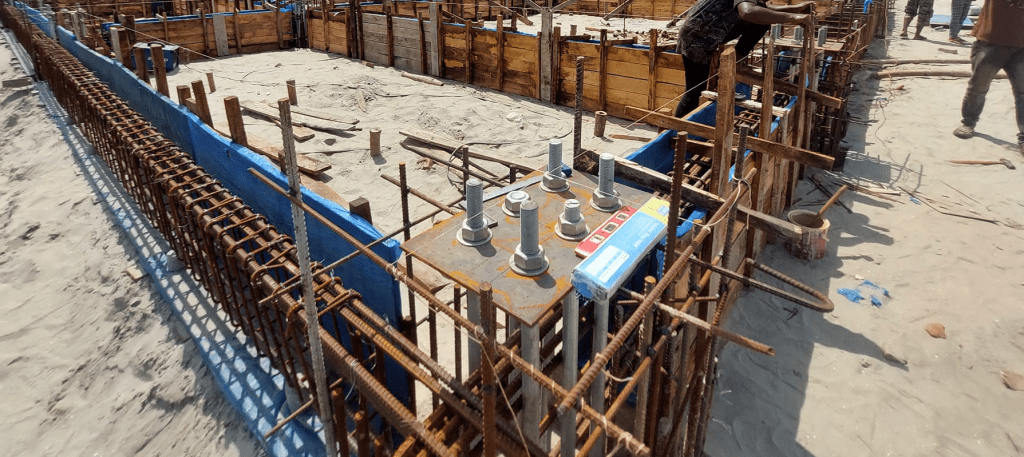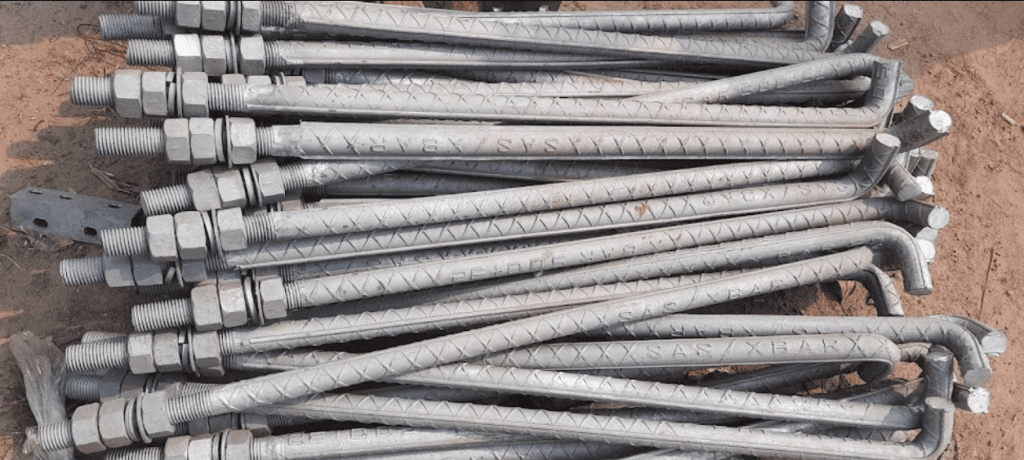An anchor bolt is a type of fastener used to secure or anchor structures and equipment to a solid foundation, such as concrete or masonry. It provides a stable connection between the structure and the foundation and prevents movement, displacement or tilting under various loads and forces.
Anchor bolts are typically used in construction and engineering applications when securing structural elements, equipment, machinery or other objects to a concrete foundation. They provide stability and prevent the objects from shifting or moving. Anchor bolts typically consist of a threaded rod or bar with a nut and washer on one end and an anchor or hook on the other end. The anchor end is embedded in the foundation material, such as concrete, while the threaded end protrudes above the surface. The threaded end allows the attachment of nuts, washers and other hardware to secure the structure or equipment in place.
When installing anchor bolts, holes are drilled in the foundation material, the anchor bolts are inserted into the holes, and then secured by pouring concrete around them or using an adhesive. The anchor bolts must be properly aligned and positioned to ensure a secure and stable connection.
Anchor bolts are commonly used in various construction applications including:
Structural steel connections: Anchor bolts are used to attach steel columns, beams and other structural elements to concrete foundations

Equipment installation: They are used to anchor machinery, equipment, and heavy loads to prevent movement or tipping. Proper installation is crucial for the effectiveness of anchor bolts. The process typically involves drilling a hole into the concrete or masonry, inserting the anchor bolt, and tightening it with a wrench or other appropriate tools. It’s important to follow manufacturer instructions and consider factors like hole size, depth, and spacing to ensure a secure and reliable installation.
Building foundations: Anchor bolts are often embedded in concrete footings or walls to provide a secure connection between the foundation and the building structure.
Bridges and highway structures: They are used to anchor bridge columns, barrier walls, and other components to ensure stability and safety.
Corrosion resistance: Depending on the application and environmental conditions, it may be necessary to use anchor bolts made from materials with corrosion-resistant properties, such as stainless steel or galvanized steel. This helps prevent rust and degradation over time, ensuring the long-term stability of the anchored object.
Anchor bolts come in various sizes, shapes, and materials to suit different applications and load requirements. They are designed to withstand tension, shear, and other forces that may act upon them. The selection of anchor bolts depends on factors such as the load capacity, environmental conditions, and specific requirements of the project.
Anchor bolts play a vital role in providing stability and structural integrity to various applications. They are widely used in the construction of buildings, bridges, towers, machinery, and other structures where anchoring to concrete or masonry is necessary.
